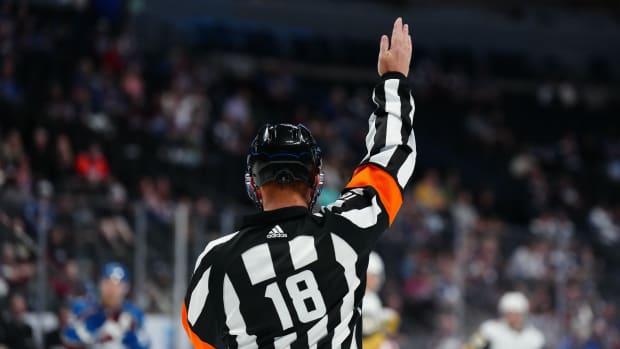When this writer was a young man, he was half-decent at baseball – hardball, not slow-pitch – and made a little bit of money calling balls and strikes as the umpire for games involving younger players.
It was a fun job, mostly because nobody took the games as life-or-death matters that would somehow determine the likelihood of professional sports careers for everyone involved. You didn’t have parents calling you names, screaming at perceived incompetence and attempting to intimidate you into giving their children all the benefit of your judgment.
Somehow, though, we’ve become a coarser society when it comes to interacting with one another, and those days appear to be long gone. And after years of stories of the increasing abuse of officials in organized hockey, we’re seeing some well-earned pushback and demand for fairer treatment of the people wearing stripes during games.
The Northern Ontario Hockey Association announced it would be adopting a program that began in 2020 in Montreal and was added by Hockey Eastern Ontario last season: the “Green Armband Initiative.”
The program’s goal is stopping the harassment and abuse of officials, and the Northern Ontario Hockey League’s adoption of the measure will include communities including North Bay, Sudbury, Timmins, Sault Ste. Marie and others. All officials under 18 years old in those locations will wear a green armband on their left arm to underscore their determination to end safe havens for those who would abuse officials.
Given that approximately 35 percent of registered on-ice officials in the NOHA are younger than 18 years old, this is a necessary message that must be heeded if we’re going to make hockey an environment safe for the mental health of all involved.
We already know how difficult it is for young players to even hope to play the game professionally, and the same holds true for on-ice officials. The grand majority of these folks will never come close to an AHL or ECHL game, let alone an NHL game.
That means the officials most of us encounter at the grassroots level are doing it not to get rich but for the love of the sport. We need to do a far better job of protecting them from overzealous parents and family members of players. We need to support the people who attempt to enforce the rules – because, without them, the games cease to take place.
Now, this is not to excuse mistakes that are made at the professional levels of hockey. We’ve said this before, but the increased speed of the game has made it all but impossible to catch each and every thing that takes place on the ice. (We’ve also argued for an additional official to serve in an eye-in-the-sky role, but that’s an angle for another day.)
Even with the improvements in officiating technology – mostly, instant replay – there is always going to be a human element at some point in the judgment process, and people on one side or another are going to come away feeling their side did not get a fair shake. You’ll never please everyone with the officiating in any sport, which is why it’s so vital for us to stand up for the people who choose to take on this position.
Parents of officials should have the same feeling of safety for their kids that parents of players have in the minor-league hockey experience. They aren’t on the same team, but they are part of the same hockey community, and they don’t deserve to be picked apart and bullied by people trying to live vicariously through their children.
Pro hockey leagues are taking steps to be more inclusionary in their hiring of officials, but we shouldn’t simply be providing more grist for the mill that can churn up and spit out people with the best intentions. Hockey must be more proactive in stopping abuse before it spreads and is normalized, and there should be no tolerance for vicious people taking out their disappointments on someone they’ve dehumanized to make themselves feel better.
Hockey officials certainly aren’t flawless, but nobody is. And it’s incumbent on us to carve out a place for officials at all levels of the sport that ensures they’ll want to return to arenas night after night.



